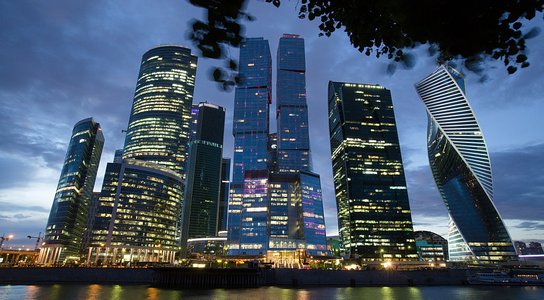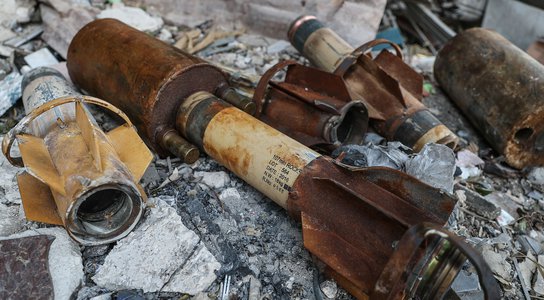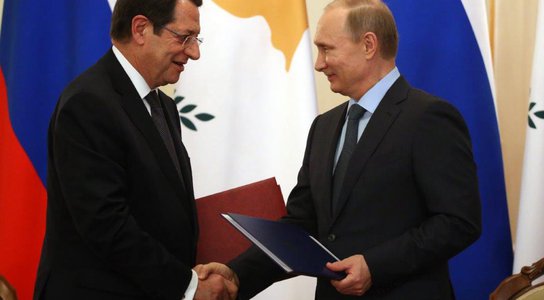By the second half of 2012, the situation in Syria had escalated into an all-out war after government forces had suppressed peaceful opposition. The regime of President Bashar al-Assad was increasingly isolated internationally and was spending huge sums to fight the war. Assad urgently needed money but had few friends he could turn to.
Mohammed Makhlouf, Assad’s uncle and then de facto banker, travelled to Moscow in mid-2012 to seek financing for the state and a safe haven for the Assad family’s money should the regime collapse. There, he met with Mudalal Khouri – the regime’s longstanding fixer and financier in Moscow, who had built up a complex web of banks, companies, and offshore entities which he has appeared to use to move money for both the Assad regime and organised crime groups.
Our new investigation reveals for the first time the inner workings of Khouri’s money laundering network, and how it appears to have been used to give vital material assistance to the embattled Assad regime. This seems to have included providing front companies for Assad’s chemical and ballistic weapons programme.
Download the full report: Assad’s Money Men in Moscow (PDF, 1.02MB)
Read the associated article: The Khouri Network's Global Connections
Key findings
Through our investigation, we uncovered that the Khouri network:
- Provided front companies – one in Cyprus and two in the British Virgin Islands – possibly used by the sanctioned Syrian Scientific Studies and Research Centre (SSRC), responsible for Syria’s chemical weapons and ballistic missile programmes.
- Attempted to purchase a chemical compound capable of being used in manufacturing explosives, on behalf of the Assad regime.
- Facilitated the purchase of fuel for the Syrian regime.
- Enabled the Syrian Central Bank to avoid international financial sanctions and get access to hard currency.
- Likely operated with the tacit consent of the Russian intelligence services, with one of Mudalal Khouri’s business partners appearing to be a member of the foreign intelligence service (SVR).
Close business allies of the Khouri network also provided financial services to North Korean entities and individuals already embargoed by the United Nations or US.
These revelations come as Syria faces an unprecedented economic crisis and the beginning of this year saw another escalation of attacks in north-west Syria from the Russia-backed Assad regime, creating the worst displacement crisis of the war so far, with almost 1 million people (including over 500,000 children) forced to flee.
The assistance of the Khouri network has helped to keep the regime’s war effort going, with the conflict now in its ninth year and contributing indirectly to some of the worst human rights abuses of the 21st century.
In November 2019, we revealed that the Makhlouf family – relatives and accomplices of the Syrian president – had purchased US$40 million worth of skyscraper property in Moscow in order to funnel money out of Syria during the war. It now appears that the Khouri network helped to facilitate these purchases.
Recommendations
Beneficial ownership transparency
The central role played by anonymous companies registered in British Overseas Territories or EU jurisdictions in facilitating the Khouri money laundering network serves as yet another urgent reminder of why more needs to be done to strengthen beneficial ownership transparency. Specifically:
- The UK’s Overseas Territories must follow through with setting up their public registers of beneficial ownership and ensuring their efficacy.
- The UK must tighten its register by conducting checks on the veracity of the information it contains.
- The EU must take action against Member States that continue to drag their feet in setting up beneficial ownership registers. So far only five have fully implemented their registers.
Stronger sanctions
Our investigation highlights weaknesses in how financial sanctions are applied to corrupt and authoritarian regimes. Though the United States has imposed sanctions on several members of the Khouri network, the EU sanctions regime hasn’t been strengthened sufficiently to allow the Khouri network to be sanctioned.
- The EU should therefore reform its sanctions framework to allow for asset freezes and other measures against those suspected of money laundering and corruption, not just those directly tied to human rights abuses.
Authors: Isobel Koshiw (lead investigator), Sara Farolfi, Nick Donovan,
Mohamed Aboelgheit
Banner image credit: Anadolu Agency / Getty Images


